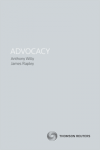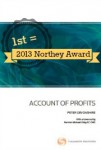Ian McIntosh - inspirational mentor, product developer and, very expensive watch lover
 Ian McIntosh is the Commercial Manager Product Development for Thomson Reuters NZ.
Ian McIntosh is the Commercial Manager Product Development for Thomson Reuters NZ.
That sounds awfully important, but what does he exactly do?
In this interview for Online Insider we ask Ian to explain his role.
The questions are headlined. His answers are below them.
What does your role as Commercial Manager of Product Development at Thomson Reuters New Zealand entail?
Ian:
This role is multi-faceted. It comprises business development and project management functions, including the creation and development of new products and the ability to drive, inspire and mentor authors to complete high quality publishing projects.
I also work as a sort of in-house consultant and as part of that role I have helped to redevelop the content of a number of leading legal texts published by Thomson Reuters New Zealand including McGechan on Procedure, Adams on Criminal Law, District Courts and Tribunals Procedure, Gault on Commercial Law and Green and Hunt on Arbitration Law and Practice.
I am currently assisting the tax team to commission and develop the content of the volumes of the Thomson Reuters Tax Library and I work with our marketing team on ideas for marketing our products.
What's your background? How are you able to bridge so many areas?
Ian:
The skills that I bring to my current role have grown out of the extensive legal research, writing and advocacy experience gained previously as a lawyer, teacher and Board member.
While I was a law student I was offered the opportunity to tutor Maori and Pacific Island law students and to develop a style of teaching that was tailored to the needs of those students. This was a wonderful learning experience for me and (I hope) for the students that I taught.
 In legal practice I did quite of bit of consultancy work and played a role in assisting Action on Smoking and Health (ASH) to lobby for a law change which resulted in a ban on smoking in workplaces. As a result of that work I was invited to become a member of the Board of ASH, a role which enabled me to gain important insights into:
In legal practice I did quite of bit of consultancy work and played a role in assisting Action on Smoking and Health (ASH) to lobby for a law change which resulted in a ban on smoking in workplaces. As a result of that work I was invited to become a member of the Board of ASH, a role which enabled me to gain important insights into:
- the work of a non-governmental organisation which placed a strong emphasis on advocacy and lobbying, and;
- corporate governance. I also delivered a number of presentations, lectures and made media appearances on behalf of ASH and as a result gained invaluable experience as a presenter.
I then went on to practice in a small Auckland law firm doing work for clients from different cultural and socio economic backgrounds. Some of my clients faced barriers (such as poverty, physical or mental disabilities, illiteracy or the inability to speak basic English) which hindered their ability to effectively access the justice system. I had to do my best to help them understand and access their legal rights. By doing this work I gained an understanding of the importance of the interrelationship between the law, rights and interests of people from a diverse range of backgrounds and the need to provide useful information about these issues to those people and those who advise and advocate for them.
Those who know you value your "collaborative advocacy" approach. How did that develop?
I try to ensure that books and other products that I commission and manage (and sometimes help to write) help to promote an understanding of the way in which the law deals with (or in some cases fails to deal with) the challenges faced by a wide range of people and groups in our society whether they be women, Maori, the elderly, the poor or those who have purchased leaky homes.
Ian:
My experience as tutor and lawyer has influenced my collaborative advocacy approach to my current role. Therefore, when appropriate I try to ensure that books and other products that I commission and manage (and sometimes help to write) help to promote an understanding of the way in which the law deals with (or in some cases fails to deal with) the challenges faced by a wide range of people and groups in our society whether they be women, Maori, the elderly, the poor or those who have purchased leaky homes.
I work with authors to provide them with platforms from which to educate the law profession and the wider public about these issues and to advocate for change. I also encourage authors to develop their thinking beyond the mere technical understanding of the law and share with readers their “vision” as to the way in which an area of law might develop in the future. I call this aspect of my work “collaborative advocacy” and I regard it as one of the most important parts of my job.
That is not to say that I ignore the need to publish high quality texts on important topics focused on business law. For example we will publish an important treatise on the Law of Secured Credit. I am particularly interested in commissioning a series of books on commercial law topics that will provide lawyers, accountants and business people with quality information about the law and business in New Zealand.
You say you also work as a project manager. What are the projects? Whom do you manage?
Ian:
As a project manager I work with authors individually or in groups to make sure that they finish what they have started.
Writing is a very tough and complex task and during the course of the writing process I provide authors with the support they need in order to enable and empower them to complete their projects.
For example, if authors are struggling with aspects of their writing I try to find the keys to unlock their thinking on particular areas with which they are having difficulty. This work requires me to be part “motivational coach”, martinet, mentor, sounding board, editor and on occasion (especially in relation to the book Advocacy) assistant author and editor.
On occasion I will also take on the role of General Editor and author as I did when I was co-general editor and author of a chapter in the book Elder Law in New Zealand.
In other words I will adopt the strategies and espouse the roles necessary to ensure that books and projects get “over the line”.
Why and how do you value, and foster, legal scholarship?
Ian:
Because I consider publishing (at the least the way I do it) to be a way in which to develop the skills of authors I am constantly seeking ways in which I can help them to collaborate with each other for their mutual benefit and personal growth.
A good example of putting this approach into action is the New and Emerging Scholar Symposium which I have developed as a means of encouraging junior legal academics to get to know each other in a collegial and collaborative environment. I am particularly proud of my role as the developer of the symposium because it demonstrates that a publishing house can support, in an altruistic way, the development of an event which fosters networking and sharing of ideas amongst the scholars who will contribute to our legal literature and indeed help to shape the law in future years.
The recent symposium was enthusiastically embraced by the scholars who participated in it and the more senior scholars who attended it. My hope is that the symposium will encourage junior legal academics to develop collaborative projects which will enable them to work together to develop their skills and knowledge over time.
How do your beliefs/values underpin or inform your management style?
Ian:
As a people manager I am a strong supporter of promoting diversity in the workplace and wherever possible I encourage the women I work with to “step up” to embrace new challenges and develop new skills.
 I am particularly proud of the work I have done coaching, mentoring and encouraging Senior Product Developer Renay Taylor to lead our important A to Z of New Zealand Law project and to enrol in the prestigious Thomson Reuters Emerging Women programme. Since I began to work with Renay she has gone from strength to strength and has become a real asset to the company developing a reputation for professionalism and integrity both inside the company and with New Zealand’s Judges, Law Professors, senior academics and law practitioners.
I am particularly proud of the work I have done coaching, mentoring and encouraging Senior Product Developer Renay Taylor to lead our important A to Z of New Zealand Law project and to enrol in the prestigious Thomson Reuters Emerging Women programme. Since I began to work with Renay she has gone from strength to strength and has become a real asset to the company developing a reputation for professionalism and integrity both inside the company and with New Zealand’s Judges, Law Professors, senior academics and law practitioners.
You talk about "selling ideas". What do you mean by that?
Ian:
When I put on my sales hat, I sell ideas for new books and projects to authors. I often present these ideas to groups of authors and when I do this I draw on the presentation skills that I developed as a teacher, lawyer and advocate for ASH. This part of the job requires me to pitch my “vision” for new books or products and inspire authors to work with me to realise that vision.
Presenting new ideas in a way that promotes in others an understanding of and a desire to turn them into a reality is an art the successful practice of which is as challenging as it is exciting.
What have been the highlights of your role so far?
Ian:
I am particularly proud of:
 the role I played as an author and co-general editor of Elder Law in New Zealand as my work on that text allowed me to use almost all the skills that I have developed over the years (the result is a text that is useful not only to lawyers advising elderly people but to those who advocate for elderly people and their families), and;
the role I played as an author and co-general editor of Elder Law in New Zealand as my work on that text allowed me to use almost all the skills that I have developed over the years (the result is a text that is useful not only to lawyers advising elderly people but to those who advocate for elderly people and their families), and; the work that I did with the authors of Advocacy to make sure that we produced a quality text that is relevant to the needs of those who need a good introduction to that subject.
the work that I did with the authors of Advocacy to make sure that we produced a quality text that is relevant to the needs of those who need a good introduction to that subject. I was also thrilled when Peter Devonshire’s book Account of Profits jointly won the Northey Prize because that was one of the goals that I set for the text when I commissioned it. It is great to work on the task of goal setting with an author and then to see those goals achieved.
I was also thrilled when Peter Devonshire’s book Account of Profits jointly won the Northey Prize because that was one of the goals that I set for the text when I commissioned it. It is great to work on the task of goal setting with an author and then to see those goals achieved.- The role that I played in the development of our new Know-How workflow product which came about as a result of my experience in law practice and the need that I identified for online tools that help lawyers to process their work efficiently. As many aspects of legal practice are either transactional or require lawyers to follow set procedures, I came up with the idea of designing an online tool which provided lawyers with step by step guidance through legal transactions and processes. I developed a prototype module which consisted of a chronological list of steps that a lawyer would need to take to complete a particular litigation process and combined this with a description of each step and advice on the best way in which to ensure that the step was completed thoroughly and efficiently. This prototype was used as the model for the recently released Workflow-Know - How which focuses on civil litigation processes. I was very pleased to see that what started off as an idea has become a fully realised product which, I believe will be very useful to practicing lawyers.
What interests you aside from your work?
Ian:
 On the lighter side I am an aficionado of complex mechanical watches (the Patek Philippe Sky-Moon Tourbillion is a particular favorite of mine), high powered cars (I want to own a Nissan GTR) , stock car racing (I go to the teams championship in Palmerston North every year) and when my budget permits, a connoisseur of fine wine and food.
On the lighter side I am an aficionado of complex mechanical watches (the Patek Philippe Sky-Moon Tourbillion is a particular favorite of mine), high powered cars (I want to own a Nissan GTR) , stock car racing (I go to the teams championship in Palmerston North every year) and when my budget permits, a connoisseur of fine wine and food.
What projects have you got lined up for the future?
I have a particular interest in developing quality legal information for the large number of people in New Zealand whose first language is not English.
In particular I see a need to create products that promote an understanding amongst Chinese and other Asian New Zealanders of the way in which our legal, business and tax systems operate and how to ensure that they know what they need to do to comply with New Zealand Law.
Qualifications
BA/LLB (Hons) LLM (Hons) AAMINZ
Contact
Ian McIntosh
T (+64) 04 802 0332
Email: ian.mcintosh@thomsonreuters.com